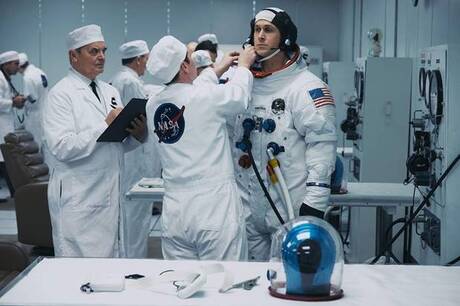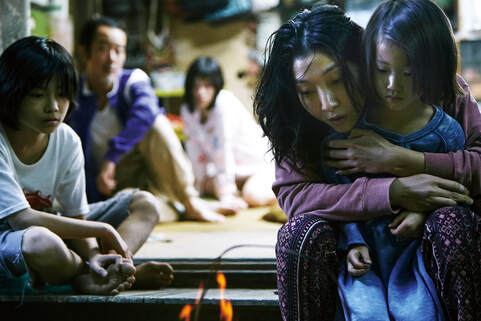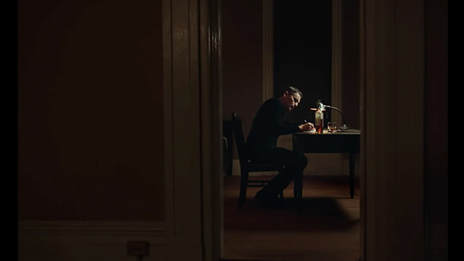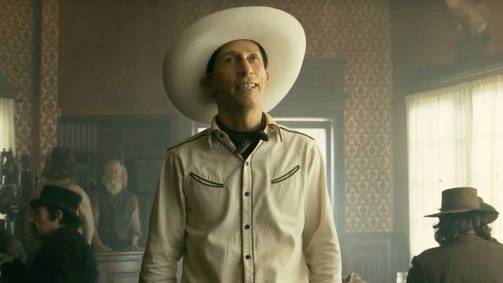A- | Neil Armstrong experiences personal and professional upheaval, leading up to his landing on the moon. Directed by Damien Chazelle Starring Ryan Gosling and Claire Foy Review by Jon Kissel |

 The Mercury Seven got their epic in The Right Stuff and so did the crew of Apollo 13, and now Neil Armstrong gets his cinematic apotheosis in Damien Chazelle’s First Man, a Kubrickian masterwork from a director who’s said all he has to say about jazz. Finding fertile new ground in the space race, Chazelle instills his historic representations with the flintiness of his Whiplash characters, portraying Armstrong as a difficult man who, in his difficulty, may have been the only person capable of emerging from the trying 1960’s intact. Utilizing you-are-there filmmaking and the best of Ryan Gosling’s oft-internal performances, First Man signifies Chazelle’s emergence as a singular auteur in total control of his art.
0 Comments
 The films of Japanese director Hirokazu Koreeda typically contain no drama at all. In something like Our Little Sister or Still Walking, he makes the equivalent of TV hangout sitcoms where he organically clues the viewer in to various dynamics and watches as the characters visit a graveyard or prepare a complicated dish. Not every film has to have physical stakes, and his often don’t. I’ve seen about half of Koreeda’s films and Shoplifters has the highest stakes, by far. There’s a constant risk of discovery in the central family-ish unit, and Koreeda has called Shoplifters his ‘socially conscious’ entry. One can’t make a political point without some kind of conflict, and Shoplifters certainly has that. It also has what makes Koreeda such a notable filmmaker i.e. a realistic adherence to workaday life that still allows for the possibility of beauty to enter at any moment.
 Of the South Korean directors who have entered Western orbits, Lee Chang-dong lacks the genre experimentation of Bong Joon-ho and the over-the-top melodrama of Park Chan-wook, and therefore his unflashy films have probably been seen by the least amount of people. His work is dense and cerebral in a way that Park or Bong often are, but Lee lacks the sexy hooks. The universal praise and Netflix availability of Lee’s Burning will hopefully change that. A far more accessible film than his previous, also excellent film Poetry, Burning is instantly recognizable first as a love triangle and then a thriller, a film tied to its country of origin but not so much that it becomes foreign to a non-Korean viewer. Burning can be taken in on its surface as a compelling tripartite potboiler or one can dig deeper and find a consideration of class, gender, resentment, and entitlement. With so much to offer, it’s a towering work of international cinema and not something to be overlooked.
 If a theme had to be forced onto the films that just happen to have been released in 2018, despair comes to mind. It’s been present in works ranging from arthouse indies like Eighth Grade and You Were Never Really Here to the big-budget spectacles of Avengers: Infinity War and Deadpool 2. Nowhere is despair more prevalent than in Paul Schrader’s haunting First Reformed, where all forms and all scales of dread are encapsulated by another of Schrader’s ‘god’s lonely men.’ Calling to mind the spare, religious-inflected introspection of mid-century masters like Robert Bresson, First Reformed is a bleak rebuke of hope and a dense treatise in search of it.
 I picture Joel and Ethan Coen writing their scripts in their office and laughing at each other about how their films will be interpreted. Maybe they think about all the ink that will be spilled by critics and film journalists wondering why the Mike Yanagita scene is in Fargo or what the true role of John Goodman is in Barton Fink, and chuckle that they don’t actually put these mysteries in their films for any purpose other than the mystery itself. Much like several of their films, there is actually no meaning to be discerned. The Coens love coincidence with no rationale behind it and the capriciousness of an impassive and unknowable prime mover, themes that film writers aren’t big fans of because there isn’t much to write about when that is the case. The reviewer looking for answers asks ‘why did that happen’ and the Coens reply ‘why ask why?’ The Ballad of Buster Scruggs appears to be exactly as cosmically retributive as much of the Coens’ earlier work, with that prime mover watching from above and snatching goodness away from the characters’ grasps. Though each of the six stories feature bloody ends, this is actually something of an outlier for the duo, in that it’s obliquely beautiful in its own specific way. Joel and Ethan remain as fatalistic as ever, but nothing is so simple as the point A of birth and the point B of death. There are songs to sung and moments to be shared along the way. |
AuthorsJUST SOME IDIOTS GIVING SURPRISINGLY AVERAGE MOVIE REVIEWS. Categories
All
Archives
April 2023
Click to set custom HTML
|